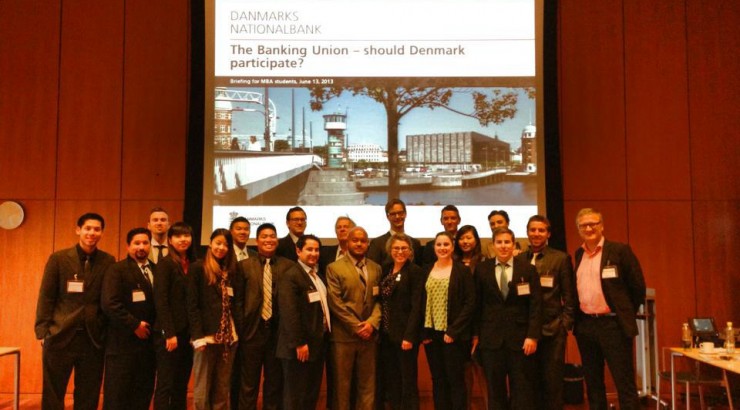
Argyros MBAs Take Bold Steps Abroad With Travel Courses Around The World
May 1, 2014
According to the Institute of International Education’s 2010 Open Doors Report for the 2008-2009 academic year, less than 31,000 U.S. graduate students participated in a course abroad for academic credit. While most professional graduate students are unable to escape for a semester or year-long program abroad, short-term opportunities are a great way to learn a new culture and participate in excursions while enrolled in an intensive academic course.
Chapman University embraces its mission to create global citizens. Over 50% of Chapman students participate in a semester abroad, an academic year abroad, an international internship, or a travel course experience before graduating.
The George L. Argyros School of Business and Economics works closely with the Center for Global Education to promote global citizenship through travel courses. A travel course is a short-term, faculty-led class that meets during the interterm or summer session. These courses combine on-campus classroom study with real-world, overseas experiences. Class sizes are small ranging from 18 – 25 students per group, allowing a personalized learning experience.
This summer, MBA students will jet set to Sweden, Norway, and Denmark with BUS 687: Business in Scandinavia, led by Dr. Niklas Myhr and Graduate Business Program Director Debbie Gonda. I had the opportunity to chat with Dr. Myhr to learn more about the academic expectations of this travel course. Dr. Myhr (www.niklasmyhr.com, @niklasmyhr) is Professor of Marketing at the George L. Argyros School of Business and Economics teaching international marketing, social media marketing, internet marketing and marketing management. He will also be teaching in Chapman’s Prague MBA this summer.
What do you expect MBA students to get out of this travel course?
I hope that this experience will broaden perspectives on businesses with an emphasis on internationalization. In Scandinavia, many companies of big and small sizes go international at an earlier stage in comparison to American companies. In America, the biggest market is at their door step so it takes much longer for them to go global. Other companies focus on internationalization.
How will this experience benefit an MBA candidate?
There is an increasing expectation that a 21st century business executive has some sort of international experience or exposure. By combining international business with a travel course, students will make themselves better off when compared to candidates with only experience and exposure to businesses in the U.S.
Interested in applying for a travel course in the future? Here’s a quick guide to getting started on your pre-trip planning:
How to Apply
Location, location, location
- Do your Research
- Information from Chapman University websites:
Argyros School of Business & Economics
Center for Global Education - On-campus posters, information sessions, study abroad/ grad fairs
- Word-of-mouth from past participants
Before You Go… Pre-Departure Logistics
- Submit your Enrollment Form & Deposit
- Read through the application requirements and enrollment form
- Receive approval from the professor
- Pay the Business office and submit enrollment form and deposit receipt to CGE
- Complete the first part of your Global Gateway Application
- Complete Pre-Decision Phase application requirements
- Stay connected with the faculty leader in charge of the course
- Read about ways to maximize your experience
*Photo courtesy of Dr. Niklas Myhr, Facebook